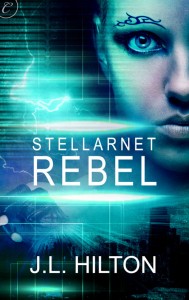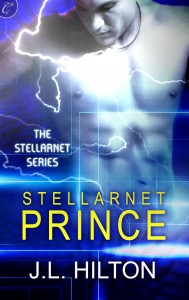
(c) spaceskeleton
* * WARNING: ADULT CONTENT * *
The Elder Scrolls V: Skyrim, Tamriel and its inhabitants belong to Bethesda. Zephyr Silvertongue is an original character.
With the shadow of Alduin lifted, the Dragonborn returns home triumphant to Solitude, where Stenvar, her husband in name only, insists she bring her Dunmer lover, Teldryn Sero, to Proudspire Manor. Are Stenvar’s motivations criminal, carnal, or just curious?
This final Skyrim story and is not just about Zephyr and Teldryn but very much a love letter to The Elder Scrolls V: Skyrim, my favorite game.
Do not read if you are easily offended by romance, humor, open marriage, sarcastic Dunmer, exhibitionist Imperials, or bathing with moon sugar soap.
3,600 words
* * *
“RETURN TO SOLITUDE”
Luna moths danced with the moons Masser and Secunda over Solitude’s strong, stone walls, gabled roofs and fluttering banners. I breathed deep the cold, crisp air from the towering Haafingar Mountains and smelled the salty Sea of Ghosts, the smoke of Beirand’s forge, and the perfume of Angeline’s Aromatics. The cobbled streets hummed with the power of the Aedra, as the Temple of the Divines enshrined all gods save one: Talos. The ruse used by both Nord and Thalmor alike to crumble the very Empire he had built in ages past. An Empire it would be my destiny to rebuild.
Octieve sang with enthusiasm outside the Winking Skeever, spilling more ale down his weatherworn armor than his throat. When we stepped into the ring of torchlight, the old man sputtered and dropped his tankard at Teldryn’s feet.
“My friend Zephyr! I mean, D-D-Dragonborn! Milady! Y-Y-You’ve returned! With your…” His eyes shifted nervously. “Eh… your… companion.”
My lover’s black brows pinched together in an even more menacing scowl than usual.
I clasped Octieve’s shoulder and held him at arm’s length, lest he vomit or piss himself in his inebriated excitement. “Calm yourself, man. Let us buy you a meal.”
Teldryn flipped the tankard in the air with the tip of his boot and caught it in his hand. “Oh, why not buy him another drink?”
Octieve made a pitiful moan, gesturing to the city gates and the guards posted there. “No, no, Corpulus would throw me out again and call the watch this time! I’m too old for broken ribs and damp jails.”
Katla emerged from the inn, and a wave of merriment poured through the open door. She took one look at me and went back inside, no doubt to report my arrival.
I comforted the aged veteran. “Not tonight of all nights, I promise you, Octieve. Tonight, we celebrate. Alduin is defeated and I’ve come home.”
In truth, I was born in Cyrodiil and declared thane in every hold of Skyrim. But, Solitude and it’s residents held a special place in my heart, even if it was the headquarters of the East Empire Company. Or, as Teldryn called them, the “heartless bastards” who monopolized trade across Tamriel.
I pressed several golden septims into Octieve’s shaking hand and curled his stiff fingers around the coins. “Go inside and warm yourself.”
“You’re too kind,” he said.
“Yes, she is.” Teldryn’s silvery voice stretched each word into a singsong of sarcasm.
“I have a generous spirit,” I reminded him, though he knew well enough I always had a coin or two for a beggar, and sometimes, for fun, would use my pickpocketing skills to slip gems into peasants’ pockets.
Teldryn placed his gloved hand over his heart and bowed. “There are as many reasons to admire you as there are ashes upon Red Mountain.”
Octieve cleared his throat with a riot of noise that sounded like an armored troll attacking a horker. “You’re husband’s inside. He’ll be happy to see you.”
Teldryn’s hand moved to the pommel of his daedric sword. “Overjoyed, no doubt.”
We entered the crowded inn and Octieve followed close enough to be seen in our illustrious company. Corpulus the innkeeper cried out from behind the bar, “The Dragonborn comes!” his eyes shining like the gold that filled his strongbox in celebration of my triumph. Bards played the tune while everyone cheered.
We’d heard the song a thousand times since descending the Throat of the World:
Our hero, our hero claims a warrior’s heart
I tell you, I tell you, the Dragonborn comes…
The entire town seemed to be there, even members of fair Elisif’s haughty court, along with countless faces I didn’t recognize. At the center of it all, my husband Stenvar. After nearly dying in Raven Rock Mine, he’d ceased adventuring and retired in Solitude to raise the orphans we’d plucked from the streets like gems from an urn. Which is when I’d bought Teldryn Sero for 500 gold septims, my heart and my soul.
“Welcome home, my dear!” His weathered face bore no malice. Stenvar was a practical man, not a sentimental one. Our marriage had always been a pliant alliance, given the intrigues of Skyrim and our dedication to Dibella, the goddess of pleasure.
He stood to greet me. Our adopted girls rushed past him and filled my arms. But my thoughts went to the children of my blood—half-human twins born with gray skin, pointed ears and lavender eyes—hidden away like Daedric artifacts. The girl, Illiri, with Karliah at the Goldenglow Estate, and the boy, Eldrys, with Savos in the College of Winterhold. For their own safety, secret even from each other. The children of heroes. The bastard babes of the Dragonborn and her Dunmer paramour.
Stenvar was the only Nord who knew that the real reason I’d brokered peace in the civil war was to go to Solstheim for their birth. The rest of Skyrim thought I’d been off doing whatever Dragonborns do. No one questioned the mysteries of the Dovahkiin.
“Mama, you’re home!”
“You’ve grown so much,” I told them. Sofie stood high as my forehead and Lucia as high as my nose. “I’ve brought you daggers from Skuldafn.”
Lucia hugged Teldryn, too. “I’m glad you finally got rid of that scary riekling.”
“A fierce little fellow, but he made more noise than a wild guar and smelled worse.”
She giggled at Teldryn’s imitation of the creature’s face and heavy breathing.
The emperor’s own cousin Vittoria Vici and Vittoria’s husband Asgeir surrendered their seats so I could sit between my husband and my lover.
Stenvar poured cups of spiced wine for us, then refilled his own tankard with ale. “We’ve been feasting since the first courier brought word of Alduin’s defeat. It’s been like the King Olaf festival for a week.”
Lisette sang The Tale of the Tongues, another tune I’d heard a dozen times since my ordeal in Sovngarde. Emeralds sparkled at her throat. By her nervous glances and Stenvar’s admiring gaze, I guessed her necklace to be a gift from my husband. If he’d found himself a Breton musician to play his flute, so much the better. She had nothing to fear from me.
“Silence, Lisette, silence!” Viarmo, headmaster of the Bard’s College, commanded everyone’s attention. “We have the Dragonborn herself among us! Let Zephyr Silvertongue tell us in her own words the capture of Odahviing within Dragonsreach, how she tamed and flew the beast into the east, entered Aetherius and saved us all! Let her sing the songs she heard in the Hall of Valor and tell us the color of Alduin’s blood.”
Viarmo had been kind to me, when I was an aspiring bard and not the Dragonborn. But he was an Altmer, and I wondered what he might report to the Thalmor agents in Castle Dour before dawn. I would support the Empire in the civil war, but I would not rest until the claws of the Thalmor were extracted from Skyrim and Talos restored to the Nords. With Alduin gone, Ulfric was the next beast to slay, then I’d be after the Aldmeri Dominion soon enough.
“Black, Viarmo!” I bellowed, and the room fell silent. “Alduin’s blood was black as a hagraven’s feather! Black as a dremora whore’s heart! Black as the eye of Sithis!”
I told of arrows flying fierce and true, the boom of powerful thu’um, and the doom that threatened to steal all souls, even such spirits as Jurgen Windcaller and mighty Ysgramor. I praised my comrades in battle, Harkon One-Eye, Gormlaith Golden-Hilt and Felldir the Old, long dead heroes of legend who fought beside me in the afterlife. I recounted each harrowing step of my journey, each growl of the World-Eater and answering slice of my blade. The bards present would rise to greatness repeating the words I spoke that night, and my tale would be retold long after my children’s children breathed their last, even if their Mer blood let them live a thousand years. I shared my story long and well, and in time reached an end.
The drinking and cavorting carried on, as soldiers reluctantly left to report for duty and merchants to open shops for those who’d come into the city to celebrate.
“I’m to Proudspire,” I told Teldryn. I craved a warm bath and a bed.
His whisper caressed the edge of my ear, light as a blue butterfly’s wing. “I’ll be here, waiting for you.”
I watched him rise and move through the revelers, like wind through a field of grain, as they parted with whispers and bobbed their bowed heads.
Stenvar watched him, too.
“You don’t need to keep up appearances on my account,” he said. “Not any more.”
“We must take care. You’re a Nord living between the Blue Palace and the Imperial garrison.”
“You’re a legend now, Zephyr, and legends are beyond reproach. Bring him home with you. I know you won’t have me, but there’s no need to sleep alone.”
“I’ll not disgrace you nor fuel gossip.”
“Don’t worry about my pride. You’ve made me richer than the emperor and my name will be inked beside yours in the chronicles of the ages, maybe even the Elder Scrolls themselves.”
We’d been through much together and I cared for the grizzled Nord. But as much as he ever cared for me, he cared for what he gained by me, whether a pile of treasure, a home, a title, or a handful of tits. I’d been content enough with that, until Teldryn.
“He doesn’t want to sleep in the manor.”
Stenvar took a long drink and lowered the tankard, foam clinging to his mustache. “What he doesn’t want is a sword between his ribs.”
“If you were going to kill him,” I stabbed a chunk of cheese with my dagger for emphasis, “you’d have done it by now.”
“There’s no way in Nirn you’d let me live if I spilled one precious drop of his dark elf blood, sweat or tears. And after you killed me, you’d leave me no peace in death but would enter Sovngarde, again, and spend eternity stomping my balls with Daedric boots of scorching.”
“You know me too well.”
I caught Teldryn’s eye while he spoke with Corpulus. He inclined his head in acknowledgment, finished with the innkeeper, and returned to my side. “Sera?”
“We will both sleep at Proudspire.”
“I’ll open a bottle of Flin,” said Stenvar amiably, “and you can describe the look on Balgruuf’s face when she told him she needed to trap a dragon on his back porch, or how Ulfric and Tullius must have glared at her during peace talks. I wish I could have seen them.”
“Tempting,” said Teldryn in a tone that told otherwise. “But I’ve acquired a room here.”
Stenvar’s gruff voice turned heads. “Don’t be difficult, dark elf. You’ve fucked my wife across the length and breadth of Skyrim, faced the same enemies, slept in the same bedroll, shit in the same bucket. Of course you’re welcome.”
Teldryn arched one eyebrow. “Well, how can I refuse such an eloquent invitation?”
With the matter settled, I had a few words with my Thieves Guild fence, Gulum Ei, and bid farewell to the girls, who would remain with Minette, the innkeeper’s daughter, for the night. A frequent occurrence, according to Stenvar, who saw no reason to coddle two children hardly children any longer, who’d survived alone on the streets long before we’d taken them in.
A boisterous procession escorted us to Proudspire and continued the celebration nextdoor at the Bard’s College. Two steps inside the door of the manor, Stenvar unbuckled his helmet and plate armor, dropping them in the parlor, and stretched with a groan.
“Sure, just throw it anywhere,” Teldryn muttered.
I sent the housecarl, Jordis, to prepare a bath in the master bedroom, and Stenvar opened a bottle of Flin, as promised. Teldryn paced, feigning interest in the collection of relics, weapons and musical instruments on display throughout the house, while my husband peppered me with questions about Sovngarde. I related every detail, except one particular moment I shared with Tsun, immortal guardian of the Hall of Valor. Which I held back not for Stenvar’s sake but for Teldryn’s, who would not like being reminded he had a god for a rival.
I could still hear the distant music and laughter of revelers when we left Stenvar snoring by the kitchen hearth. Upstairs, I undressed.
Teldryn took his time unbuckling his gauntlets and removing his gloves, preferring instead to watch me. “Was this your idea or his?”
“His. He thought we were well beyond the need for pretense.”
“Good. It’s about time.”
Naked, I paused at the edge of the tub. “Aren’t you joining me?”
He sprang like a Falmer trap, sweeping me into his embrace. His lips near mine, nose to nose, forehead to forehead, leather-clad chest pressed to my bare breasts.
“I’m not with you enough.”
“You’re always with me.” I brushed a kiss across his lips satiny purple as the skin of a jazbay grape.
“Not like this. Too much, we spend our lives in armor, watching the skies, and not enough naked in each other’s arms.”
“Then why are you still dressed?” My nimble fingers found laces and buckles, removing his doublet and undershirt to reach the smoldering ashen skin beneath. He no longer wore the chitin armor and red mask in which I’d first met him, but had taken pieces from the Dark Brotherhood’s Falkreath sanctuary. The assassins were gone—we’d killed them all—but they’d had style. The black and red studded leather fit his lean body as if Sanguine himself had made it out of passion and shadow.
Every inch of hard muscle, every fine hair under my fingertips and lips, stoked the growing frenzy within me. I tried to pull him into the water with me and he resisted, the two of us laughing and splashing, stealing tastes of each other’s skin in the midst of the struggle.
Suddenly, he pulled away, drew his sword and summoned a flame atronach. Reacting on instinct, I inhaled, and the words fus ro dah filled my mind. Whatever the threat, using the powerful shout would give me a moment to leave the tub and grab my own sword.
Stenvar stood in the doorway. He took in the wet floor, our scattered clothing, and Teldryn, half-dressed and tensed to unleash a flagon of flagellation, with the flickering conjuration at his side.
The corner of his mouth turned up in a half smile. “Be at ease, dark elf. I didn’t mean to startle you. You know, this room’s right above the kitchen.”
I exhaled and the power of the thu’um ebbed away. “Our apologies. I didn’t think we would wake you.”
Stenvar entered and sat in a chair.
“Please, come in, have a seat, make yourself at home.” Teldryn’s acidic tone could have scorched the shell off a mudcrab.
The atronach did a backflip in the narrow space between the bed and the wall.
Stenvar crossed his booted feet on a table piled with platters of cheese, wine and sweet rolls. “She ever tell you about Vorstag and Thonnir? Very interesting adventures they had… in the rooms of several inns.”
Teldryn sheathed his sword. “I’ve met Vorstag. The Nord from Markarth. Facial tattoos, real traditional type. Haven’t met Thonnir, but I’ve heard of him. We tend to avoid Morthal.”
Bringing up that little piece of my past made me wonder if Stenvar had other motivations for inviting Teldryn to Proudspire. If so, I had to enlighten him.
“We don’t invite others to our bed, if that’s what you’re asking.”
He shook his head and reached for a bottle of wine. “I’ve no desire to use your dark elf as a whetstone for my blade.”
“I am both relieved and insulted,” Teldryn quipped. With a sizzling sound, the flame atronach disappeared.
“Do you remember Jarl Siddgeir?” Stenvar asked me. His suggestive tone was just the barb to get under my lover’s skin.
Teldryn sputtered in disgust. “The young s’wit in Falkreath? Really?”
Stenvar chuckled. “Will you tell him, or shall I?”
I shrugged in indifference and scrubbed my skin with moon sugar soap. No point in letting the water go cold. “There’s not much to tell.” Certainly not that the taste of Black-Briar Reserve still reminded me of the handsome bastard’s velvet cock.
Teldryn’s voice never lost its melodious quality, even when it had an edge. “Oh, please, I must know all about the slick, slouching Siddgeir.”
“I bestowed the blessing of Dibella upon him. Which is my duty as an agent of Her sacred pleasure. A duty I have since abandoned for you.”
Stenvar took a swig of wine straight from the bottle. “Right there in the throne room. He declaired us thanes before she could even swallow.”
I reached for a jar of alchemical soap, which I massaged into my hair while Teldryn seethed.
“The jarl of Falkreath is a snide, pompous and annoyingly insolent fetcher.”
“Well, isn’t it lucky for you I like snide, pompous, annoyingly insolent fetchers? Rinse.”
He squinted at me in annoyance, but lifted a pitcher of warm water and poured slowly as I tilted my head under the stream. When the pitcher was empty, I wiped water from my eyes and reached for my robe. Teldryn held it open, blocking Stenvar’s view as I stepped out of the tub and slipped it on. Not because of my modesty, which didn’t exist, but his own possessive heart.
I mixed a bit of lavender and honeycomb into a tankard of wine, which I warmed between my hands with a mild fire spell. “What’s the point of all this, Stenvar? Are you writing a new volume of the Argonian maid?”
“I want to know, of all the men and mer, how this second-rate sell-sword satisfies you. You! The woman who won the favor of the Daedra of debauchery.”
“‘Second rate’?” Teldryn echoed with indignation. “I entered the Bloodskal Barrow and defeated the the dragon priest Zahkriisos, when you could not.”
“First-rate sell-sword, then. Is that why you left me, Zephyr? Because my sword arm was too slow?”
“No.”
For once, my silver tongue could not find the words. The truth was simple yet inscrutable. I had bedded men and mer, but Teldryn was something more. As one might enjoy ale and mead, then discover Firebrand Wine—if wine could make starlight brighter, roads shorter or laughter sweeter.
Teldryn’s eyes glimmered dark red as heart’s blood in the candlelight. My delight in the twilight shade of his skin, his ebony hair, the sardonic twist of his mouth, never faded. I adored his voice, his counsel, his humor, and his skill. For months we’d traveled together before I ever saw his face. And by the time I did, I wouldn’t have cared if he’d been a Dwemer construct or a frost troll.
“Then, by the gods, why?” Stenvar persisted. “A jarl, a king, a god, even an orc chieftain, I could understand. But this… hustler?”
Teldryn gasped in indignation.
I laughed. “Do you think I’ve been swindled? The mistress of thieves and sworn Nightingale of Nocturnal? Am I the doom-driven dupe of the dragon blood?”
“What does he do, what does he have…” Stenvar gestured in the general direction of Teldryn’s pants “…that I do not? I need to know. If not as your husband, for the sake of Mara, at least as a fellow follower of Dibella.”
Teldryn crossed his arms and leaned against the thick baluster at the corner of the canopy bed. “There’s more to life than coins and cock size, outlander.”
Stenvar scoffed. “Is there?”
I sipped my wine in the pensive silence, Stenvar no doubt considering the sincerity of Teldryn’s words, and Teldryn no doubt wishing Stenvar would go away.
I noticed Jordis waiting outside the bedroom door and I asked if Teldryn wanted fresh water.
He replied, “I’ll not bathe in front of him. He’s not my husband.”
I waved Jordis away.
Stenvar shook his heavy head and rubbed his brow. “I don’t understand why he is closer to you than your own shadow. He has nothing. He is no one.”
“No different than you, when we first met in Candlehearth Hall,” I reminded him.
“But I am your husband now, in Mara’s eyes if not in yours.” Stenvar dropped his feet to the floor and leaned forward. His deep voice growled with desperation. “I share your lands and titles. I hold your fortunes. Yet every night I fall asleep wondering when I’ll be sent to Sovngarde with an Elven dagger in my heart.”
“What a terrible way to live.” Teldryn’s voice softened with genuine pity. “Take comfort in being of no consequence to me and sleep well, thane of Haafingar hold. Zephyr is the greatest treasure in Tamriel, whether she is the Empress of Cyrodiil or a fishmonger in Riverwood. You and your manor houses and Nord traditions and everything else can go to Oblivion, for all I care.”
I needed to kiss him. It was a need like breathing, I was drowning without him. If I couldn’t explain to Stenvar how I felt about Teldryn Sero, or how he felt about me, we would show him.
I set aside my tankard and reached for Teldryn, my robe falling open, inviting his touch. He pulled me close and the conversation ended because our mouths were busy elsewhere.
We could have used an arsenal of magical enhancements, engorgement, enlargement, ice, heat, vibration, and frenzy spells. We could have bitten, slapped, bruised and scratched, then healed each other, again and again. We could have summoned a dremora to serve us, made creative use of troll fat, or I might have tied Teldryn to the bed, covered his blade with honey, and taunted him with my tongue until he begged for release.
But we did none of those things.
If Stenvar learned anything from us that night, it was that the brightest blessings of Dibella and the darkest pleasures of Sanguine are found not by those who have the most coin or highest rank, nor those who perform the wildest feats, but by those who share the truest love.
* * *
~ J.L. Hilton
Skyrim smut 1: “Come with me to Sovngarde”
Skyrim smut 2: “I need another stamina potion”
Skyrim smut 3: “Tickling the angry troll”
Skyrim smut 4: “The Dunmer of Debauchery”
Skyrim smut 5: “A Tsunny Day in Shor’s Realm”
Skyrim smut 6: “Return to Solitude”
How I left my husband for a guy with pointy ears




 The Elder Scrolls V: Skyrim, Tamriel and its inhabitants belong to Bethesda. Zephyr Silvertongue is an original character.
The Elder Scrolls V: Skyrim, Tamriel and its inhabitants belong to Bethesda. Zephyr Silvertongue is an original character. * * WARNING: ADULT CONTENT * *
* * WARNING: ADULT CONTENT * *






